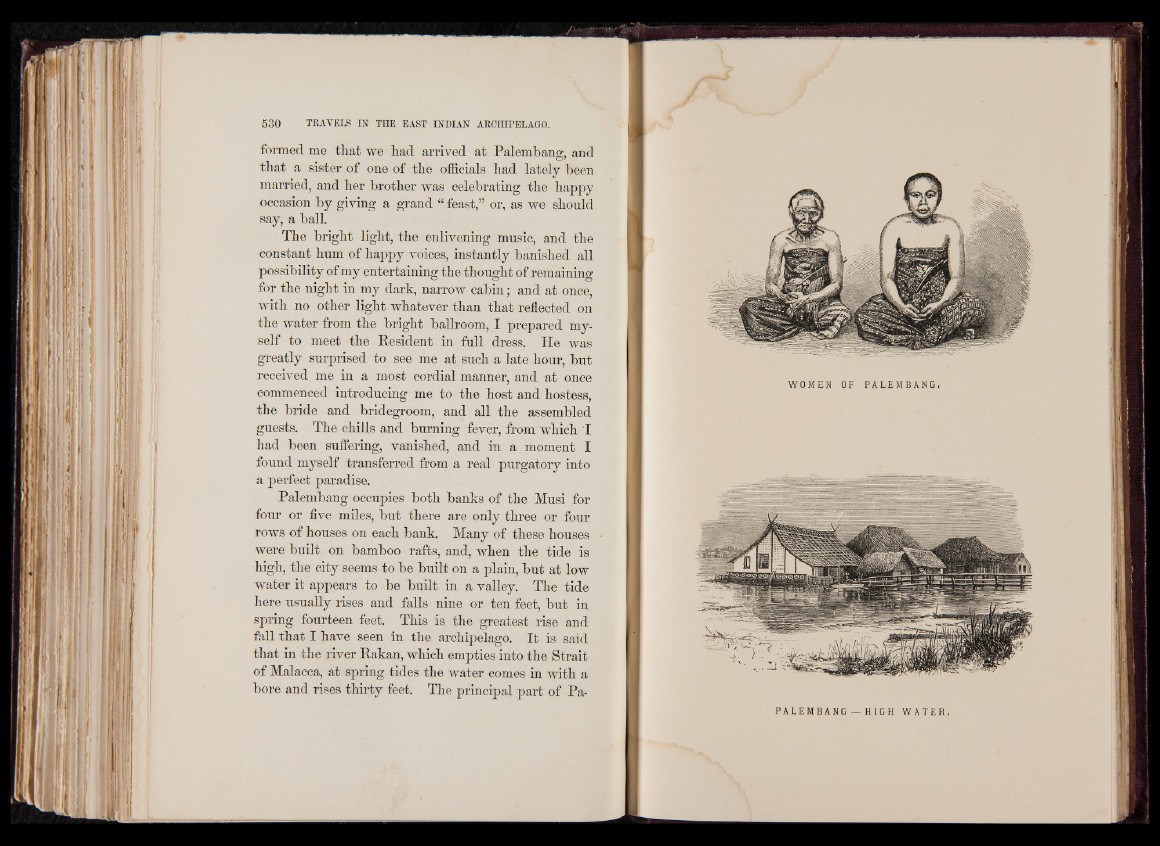
formed me that we had arrived at Palembango-, 7 and
that a sister of one of the officials had lately been
married, and her brother was celebrating the happy
occasion by giving a grand “ feast,” or, as we should
say, a ball.
The bright light, the enlivening music, and the
constant hum of happy voices, instantly banished all
possibility of my entertaining the thought of remaining
for the night in my dark, narrow cabin; and at once,
with no other light whatever than that reflected on
the water from the bright ballroom, I prepared myself
to meet the Resident in full dress. He was
greatly surprised to see me at such a late hour, but
received me in a most cordial manner, and at once
commenced introducing me to the host and hostess,
the bride and bridegroom, and all the assembled
guests. The chills and burning fever, from which I
had been suffering, vanished, and in a moment I
found myself transferred from a real purgatory into
a perfect paradise.
Palembang occupies both banks of the Musi for
four or five miles, but there are only three or four
rows of houses on each bank. Many of these houses
were built on bamboo rafts, and, when the tide is
high, the city seems to be built on a plain, but at low
water it appears to be built in a valley. The tide
here usually rises and falls nine or ten feet, but in
spring fourteen feet. This is the greatest rise and
fall that I have seen in the archipelago. It is said
that in the river Rakan, which empties into the Strait
of Malacca, at spring tides the water comes in with a
bore and rises thirty feet. The principal part of Pa-
P A L E M B A N G — H I G H W A T E R ,